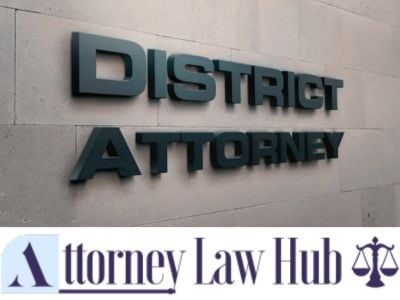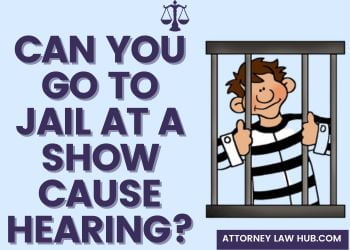The answer to the question, “Can a victim speak with a district attorney?” is “Yes.” Communication with the district attorney can be an essential stage of the legal procedure since it enables victims to offer relevant evidence, express their viewpoints, and communicate their fears.
Without waiting anymore further, Let’s dive into the details.
Speaking with the district attorney

The prosecutor’s office might be able to assist you in the following ways:
Contact the district attorney’s office in charge of your case. Their contact information could be found in court documents or online directories. Call or email them to set up a meeting or explain your circumstances.
Making a schedule:
Pick a time that is convenient for you to talk with the district attorney. It’s essential to be kind and patient because they can have a busy day. If necessary, describe the meeting’s value or urgency.
Get ready in advance:
Obtain any necessary paperwork, such as police reports, medical records, or pictures, before meeting with the district attorney. Get your ideas together and make a list of any issues or questions you wish to bring up at the meeting. Being organized will help you cover every aspect.
Share your viewpoints:
Inform the district attorney of your understanding of what occurred during the meeting. This includes any necessary information, witnesses, or supporting documentation you may know. Communicate openly and clearly. Please be respectful and direct when expressing worries or requests.
Pose investigations:
Never hesitate to ask the district attorney questions regarding your case, the charges, or the legal procedure in general. When something confuses you or you want additional information, ask for an explanation. The district attorney can help you and is available to deal with your issues.
Take their advice:
You’ll receive direction on the next phase of the legal process from the district attorney. They’ll let you know if there are any hearings, court dates, or other things you need to do. To ensure your victim’s rights are secured, pay close attention to what they say and do what they suggest.
Keep in mind that the district attorney brings the case forward and represents the state’s interests. They are there to help you, but they also have duties and limitations set by the law.
After your initial meeting, don’t be afraid to contact the district attorney’s office if you need more information or assistance. This is also true if you have new questions or concerns.
Can victim talk to prosecutor?

Yes, victims can speak with prosecutors. They can express their viewpoint, their emotions, and their worries about the issue in this essential way. This helps prosecutors in understanding how the crime affects the victim’s life and enables them to make wise decisions in court.
Victims frequently speak to prosecutors via a process known as a “victim impact statement“. The victim has the opportunity to explain to the judge how the offence has harmed them psychologically, emotionally, and financially. When deciding on a fair sentence for the criminal, the court can utilise this information to better grasp the harm that was done.
Remember that while speaking with a prosecutor can be helpful, doing so is also a legal procedure. When speaking with the prosecutor, it’s a good idea to have a victim advocate or support person there. They can assist you in expressing your ideas properly and ensuring that your rights are maintained.
Keep in thoughts that communicating with the prosecutor gives the victims more authority to participate in the legal process and can help produce a more fair result.
Who will speak for the victim?

Yes, the victim can have a representative defend them. This person is commonly referred to as a “victim advocate.” A victim advocate is similar to a helpful friend who is familiar with the legal system and can guide the victim through it. They can be there for the victim, concentrate on their worries, and ensure that their rights are honoured.
Victim advocates can assist the victim in communicating their needs and sentiments to the judge, prosecutor, and other authorities. They give the victim important information about the court system and their options. This assistance is necessary especially if the victim is afraid or nervous about talking in court or directly to the prosecution.
The entire process can be handled a bit easier with the help of a victim advocate, who will also make sure that the victim’s perspective is heard and respected. They act as the victim’s trusted supporter across the difficult period.
Can the victim contact the defense attorney?

The victim can undoubtedly get in touch with the defence lawyer. It gives the victim a chance to express their concerns or information regarding the situation. The accused criminal, not the victim, is the defence attorney’s primary client, thus it has to be emphasised.
It is advisable to proceed carefully if the victim decides to speak with the defence attorney. Anything the victim says could be a useful component of information for the defence.
Consider speaking with the prosecution or a victim advocate before contacting the defence lawyer. They can advise on how to handle this dire situation while defending their needs and interests.
It’s essential to keep in mind that while getting in touch with the defence lawyer is an option, it’s best to do so carefully and with consideration for any possible consequences.
Can a defense attorney contact the victim?
The defence lawyer can indeed get in connected with the victim, but it matters for knowing the potential motives and circumstances.
The defence lawyer may want to acquire data, present evidence, or consider several options in court trials.
There are some considerations to make, just as there are when the victim approaches the defence attorney.
First of all, the victim is free to choose whether or not they want to speak with the defence lawyer. It’s not necessary.
If the victim chooses to speak, they should keep in mind that the defence lawyer represents the person who is being accused of the crime, not them Anything shared might be used into action in the defence’s planning.
Furthermore, before talking with the defence attorney, the victim might be advised to take advice from the prosecutor or a victim advocate. The victim’s rights and freedoms can be protected at all parts of the legal process owing to the guidance of these experts.
Last but not least, the victim has the option to avoid speaking with the defence lawyer if they are uneasy or uncertain about the circumstances. We place maximum focus on their comfort and well-being.
In short, even if the defence lawyer has the option to get in touch with the victim, this choice should be carefully considered with the victim’s desires in mind, while also being aware of the possible effects.
Can defense attorney contact the witness?
A witness is contacted by the defence attorney. This occurs when witnesses frequently possess important knowledge that may assist in the defense’s case-building.
A few crucial factors should be taken into account in these circumstances, though. When a defence attorney makes contact with a witness, it’s normal to obtain information, opinions, or viewpoints that might support their client’s version of events.
Both parties are attempting to make the best possible case during this phase of the legal process. Take it into consideration that you have an option as a witness.
Whether to speak with the defence attorney or not is entirely up to you. It’s wise to be truthful and accurate in your communications if you decide to do so.
Your ideas could make it possible for the legal system to take into consideration all relevant factors.
Ask the prosecution, law enforcement, or even your legal counsel, if you have one, for assistance if speaking with the defence attorney makes you feel doubtful or uneasy.
In addition to offering advice, they may assist you in comprehending your alternatives and rights.
Overall, even if the defence lawyer can get in touch with the witnesses, it’s significant for the witnesses to be prepared to make truthful decisions and treat the court system with respect.
Does the prosecutor talk to the victim?
Yes, the prosecutor does speak with the victim, and this is important to the case. When the prosecutor speaks with the victim, the victim has the opportunity to express their thoughts and feelings regarding the incident.
To make wise conclusions in court, the prosecutor needs to be aware of how the crime has affected the victim’s life.
To learn more about what occurred, how it affected the victim, and whether they have any worries, the prosecutor may question the victim. This deepens the case and ensures that the victim’s point of view is heard and taken into respect.
The victim can participate in the legal procedure by speaking with the prosecutor.
It can impact the judgements and steps taken in court. The victim can ask questions, hear case updates, and have a chance to feel more involved.
A victim advocate or support person might accompany the victim if they feel nervous or insecure about speaking with the prosecutor. By doing so, the procedure can be made easier to talk and the victim’s rights can be preserved.
Essentially, the conversation between the prosecutor and the victim is an important stage in the legal process because it allows the victim to be heard and take part in the goal of justice.
Conclusion
In outcome, interaction matters most to the legal process between the prosecution, the defence, the victims, and the legal representation. To ensure that their voices are heard and their rights are protected, it gives victims a platform to express their opinions, worries, and supporting statements. It’s important to approach these conversations carefully and with direction if necessary, even if victims can communicate with prosecutors, defence lawyers, or even witnesses.
Support, controlling the legal system, and assisting people in making wise decisions are all important tasks that victim advocates perform. The achievement of justice and resolution is eventually advanced by this cooperative approach, which improves the fairness and efficiency of judicial proceedings.




